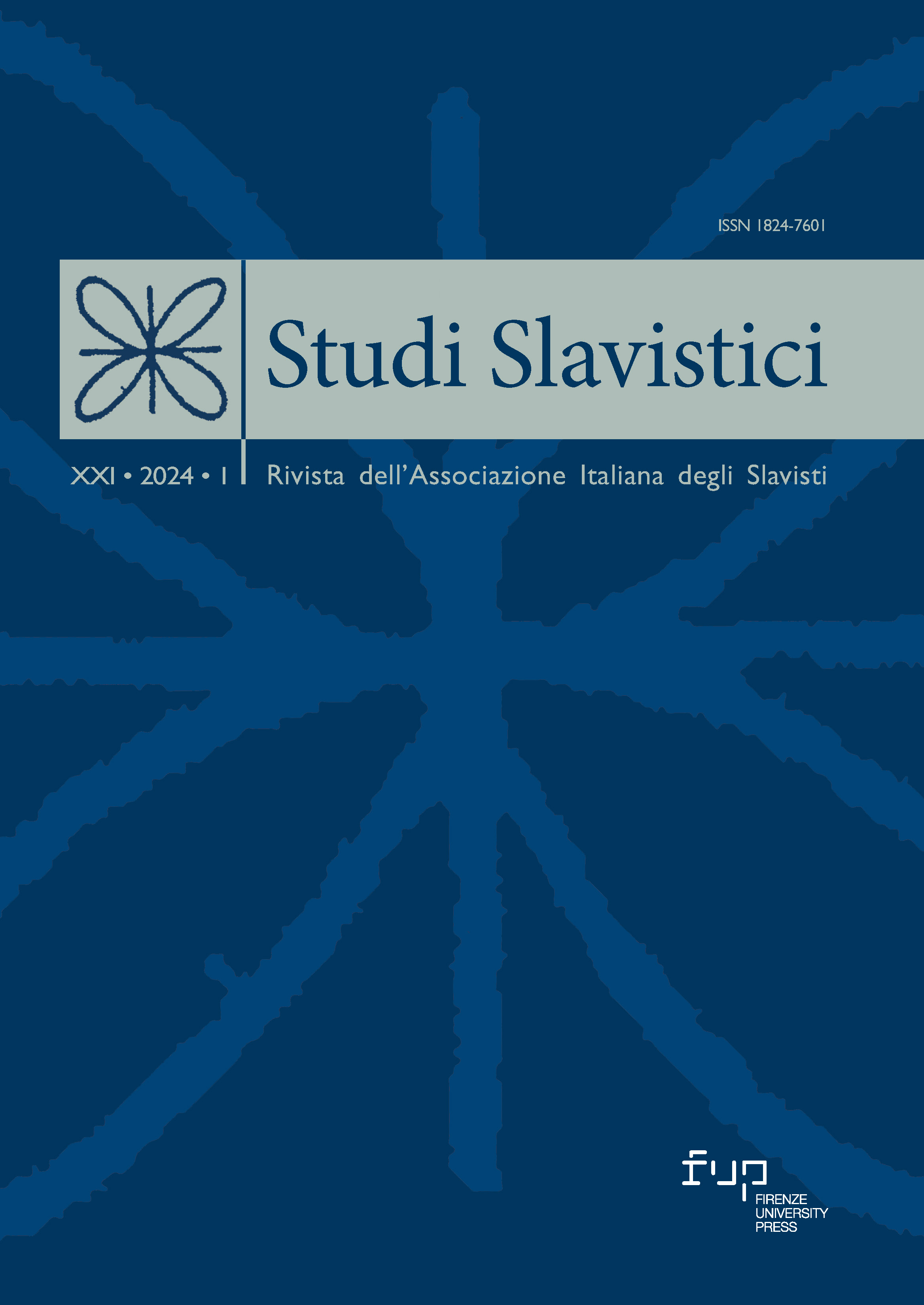Articoli
The Development of the Slavic Names of the Days of the Week from Christian and Pre-Christian Elements
Published 2024-07-11
Keywords
- Days of the Week,
- Slavic Languages,
- Pre-Christian Slavs,
- Saint Cyril
Copyright (c) 2024 Janusz Szablewski

This work is licensed under a Creative Commons Attribution 4.0 International License.
Abstract
This paper is an attempt at tracing the origins of the Slavic names of the days of the week. Although these names have a clear etymology from a purely linguistic point of view, it is unknown whether they are of Christian or pagan origin, and if they were created by an individual – presumably Saint Cyril or Methodius – or arose more naturally. The paper examines the Slavic day-names in relation to other European languages and attempts to recreate the development process of the Slavic week from its supposedly pre-Christian beginnings to its final form that we know from written Slavic languages. The evidence shows that the Slavic names of the days of the week developed over a longer period, starting in pre-Christian times and introducing Christian elements through contact with neighboring cultures along the way. It also excludes the possibility of their creation by an individual, while leaving room to speculate about the original form of the Slavic week.References
- Derksen 2008: R. Derksen, Etymological Dictionary of the Slavic Inherited Lexicon, Leiden-Boston 2008.
- Enrietti 1994: M. Enrietti, Considerazioni sulla settimana slava, “Europa Orientalis” xiii, 1994, 1, pp. 137-155.
- Falk 2004: M. Falk, Names of the Seven Days of the Week in the Languages of Europe, Part ii, “Onomastica Canadiana”, lxxxvi, 2004, pp. 17-40.
- Greenberg et al. online: M.L. Greenberg, L.A. Grenoble et al. (eds.), Encyclopedia of Slavic Languages and Linguistics Online, <https://referenceworks.brillonline.com/browse/encyclopedia-of-slavic-languages-and-linguistics-online> (latest access: 10.01.2024).
- Hannick 1988: C. Hannick, Zu den slavischen Bezeichnungen für die Wochentage, in: Festschrift für Heinrich Kunstmann, München 1988 (= Sagners Slavistische Sammlung, 15), pp. 162-165.
- Králik 2015: Ľ. Králik, Stručný etymologický slovník slovenčiny, Bratislava 2015.
- Liddel, Scott 1996: H.G. Liddel, R. Scott, A Greek-English Lexicon, Oxford 1996.
- Lukić 2020: M. Lukić, On the Triune God in Letters, “International Journal of Language and Linguistics”, vii, 2020, 4, pp. 88-91.
- Machek 2010: V. Machek, Etymologický slovník jazyka českého, Praha 2010.
- Moszyński 1985: L. Moszyński, Kto i kiedy ustalił słowiańskie nazwy dni tygodnia, in: Litterae Slavicae Medii Aevi, München 1985 (= Sagners Slavistische Sammlung, 8), pp. 223-230.
- Rejzek 2012: J. Rejzek, Český etymologický slovník, Voznice 2012.
- Toporičić 1998: J. Toporišić, Slovenski knjižni jezik, i, Maribor 1998.
- Trubačev 1974-2014: O.N. Trubačev, Ėtimologičeskij slovar’ slavjanskich jazykov, Moskva 1974-2014.
- Waniakowa 1998: J. Waniakowa, Nazwy dni tygodnia w językach indoeuropejskich, Kraków 1998.
- Zaroff 2016: R. Zaroff, Measurement of Time by Ancient Slavs, “Studia Mythologica Slavica”, xix, 2016, pp. 9-39.

